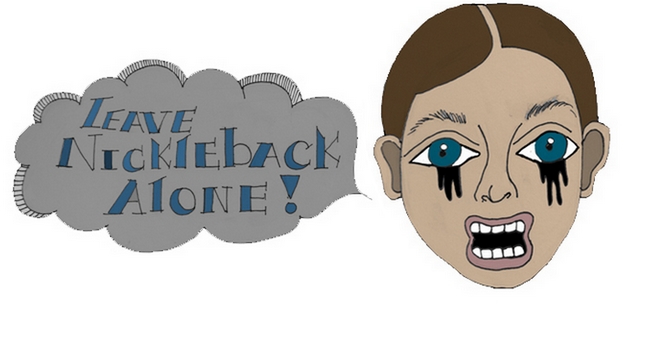An essential part about gaining ubiquity is the not-so-totally-transparent ability to get your audience to understand your influence. There are easy ways to do this (covering artists, obviously), but the more intrinsically rewarding facet of music listening is discovering exactly where an artist is copping his or her swagger. Like realizing that Animal Collective might not be jacking overtly from Brian Wilson: the fulfillment in noticing the clear Beach Boys-style paths the Collective have wandered down is part of the reason Merriweather Post Pavilion is such a pinnacle of experimental 21st century pop.
That said, every once in a while, a strange wave flies through genre, defying its own illogical presence by merely informing and, frequently, bolstering what might have seemed slight and airy otherwise. Last year, it was the reemergence of the saxophone—objectively odd since this phenomenon happened directly after the King of Sax Pop, Clarence Clemons, died. This year, as odd as this might sound, the sound of young America has the definite smack of Enya.
This, obviously, is unintentional. Unless today’s hip, female artists are more attuned to what they’re hearing when having cavities pulverized, Enya is not directly informing the progressive decisions of 2012’s blogosphere-approved female acts. That being said, Enya’s trademark atmosphere, the ability to sound hand-crafted given a breadth of orchestral sensibility, is not without its lessons and benefits.
Frankie Rose’s Interstellar is, well, stellar for a number of reasons—her insistent percussion section being the most notable one. However, such on-the-nose forwardness is offset by the swathes of synth and echo that surrounds her vocals. The opening title track is a romp, but her vocals are noticeably masked behind effects, so much so that her lyrics are frequently unintelligible.
Her indie-rock sensibility is still fully intact, but she’s added something that, 16 years ago, Enya was successfully palling around to the housewife sect.
On her most famous album, The Memory of Trees, Enya’s voice is often pushed behind the swirling harp and string arrangements that serve as the backbone to her music. Because her lyrics were never vitally important, Enya developed a method of creating vocals that were contextual, layered and emotional, without having to necessarily worry about the audience being able to hear every word. Rose, for all her modern cache, essentially copies this approach on “Apples for the Sun.”
Which brings us to the queen of the 2012 hipster female sect: Claire Boucher of Grimes. This writer isn’t stupid enough to draw a direct lineage from Enya to Boucher—such insinuation is tenuous at best and outright wrong at worst. But the essential realities of the way Enya and Grimes operate is the same. While Grimes’ witch house explosion is based mostly off her insane danceability, there is a depth to her songwriting that bellies the opinion that she’s club music.
Then there are her atmospheric vocals. Boucher’s vocals more closely resemble Enya’s in content and execution than one might think. Take the breakout hit “Oblivion” and Enya’s most-oft referenced song, “Orinoco Flow.” While neither sonically resembles the other, there’s a narrative conceit that speaks to why Enya’s influence is more readily apparent these days: that conceit being that there’s one essential line of verse that needs to be understood, while the rest is either set dressing to a less-attuned listener or nuggets of gold to more interested parties. For Grimes, it’s “see you on a dark night,” which pretty well sums up the entire Grimes ethos on the fantastic Visions. For Enya, it’s “sail away,” accomplishing the same feat on The Memory of Trees.
While it’s not an exactly novel approach to songwriting, the focusing on one particular line, a tangential lineage can be drawn, essentially, from the 20-something grooving to Grimes at the Mercury Lounge and her mother, relaxing in Middle America. Grimes, like Enya, is noticing that mood and inflection matter more to her art than lyricism, which is potentially a large step forward for the singular girl making music. By aesthetically differentiating themselves from the riot grrls, or the singer-songwriters that bear their soul, Boucher and Rose have stepped onto a road set forth by an oft-forgotten contemporary pop idol, one that might lead to a trailblazing, atmospheric new way of looking at hip, female artists.



